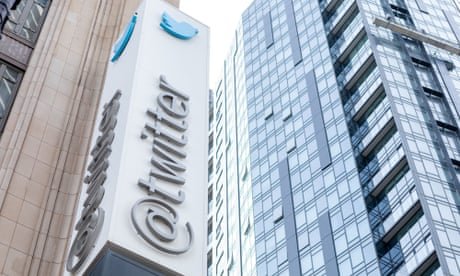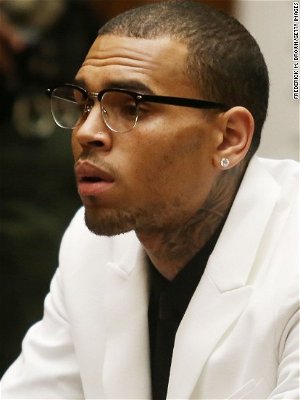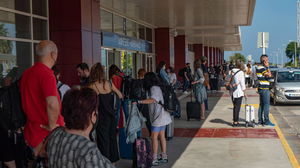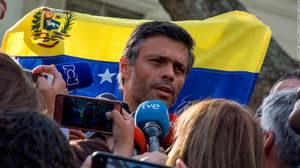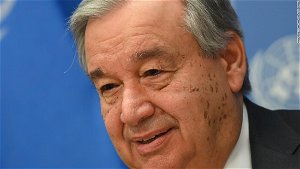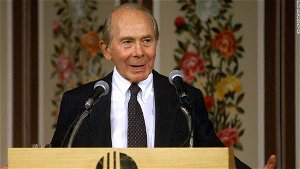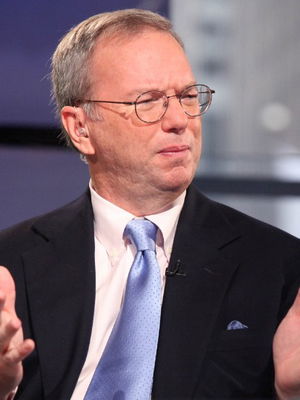With Twitter in turmoil under its new owner, Elon Musk, many users are taking a moment to assess the legacy of the social media platform. Launched in 2006, the service has become an integral part of journalism, revolutionizing the spread of information, expanding access to sources, and elevating voices that previously went unheard. It has also, of course, become known for toxic discourse, misinformation and online abuse.
As questions mount over Twitter's future, four Guardian writers reflect on their experiences - personal and professional - with the platform.
When Twitter finally collapses, it'll be the doorbell tweet that I remember. My friend and former colleague Laura Silver had complained her housemates would always ignore doorbells as an unacceptable intrusion on their lives, meaning she often missed out on packages being delivered.
Bored on a quiet morning, I quickly tapped out a tweet, expecting a handful of responses: "Someone in the office is claiming 'millennials don't answer doorbells unless people text to say they're outside'. Is this A Thing?"
My existing Twitter followers responded with various whimsical tales about doorbell etiquette. Within a few hours the tweet had spread beyond my immediate network and people were accusing me of being part of a mainstream media plot to stir up intergenerational war. Within a day it had turned into a full-blown culture war topic, with (mainly US-based accounts) suggesting my pro-doorbell stance represented the worst examples of prejudice and privilege that exists in the world. Newspaper columns were written about the media trying to inflame hatred against those who, for various reasons, found doorbells deeply intrusive. It prompted a Wall Street Journal investigation into the future of the doorbell industry.
Twitter is fundamentally a game, and once you master the rules - brevity, provocative language, and emotional content - then it is possible to "win". There is no easier way to force your piece of information - whether an exclusive news story, a sharp piece of political commentary, or a strong view on domestic appliances - in front of the influential people who control politics and the media. It is the global workshop for both good and bad takes, the place where you can test what will provoke the strongest reaction, and one of the most brilliant sources of raw news that has ever existed.
When I was working as a political journalist in the Peak Twitter era of the 2010s, I often tried to imagine the real-world political impact of the site by playing a game of "what if?".
Would Jeremy Corbyn have even made the ballot to be Labour leader without early, vocal support on Twitter? Would Theresa May have passed a Brexit deal if Twitter hadn't been around to cause chaos? What would the Good Friday Agreement be like if Gerry Adams had been live-tweeting throughout the negotiations? Sit in the House of Commons reporters' gallery and you'd see journalists sending tweets, then endlessly refreshing Twitter and reading each others' tweets. Look down into the chamber below and you'll see the timelines on the screens of the MPs, who are doing exactly the same.
And for all the negatives - it's well documented what it's like to be a prominent woman or person of colour on the site - it does mean you can't hide from criticism. Twitter blew up a lot of traditional political media management by making the workings obvious for all to see. It's also been one of the most effective press regulators that has ever existed, calling out bad journalism and prejudice by circumventing the old gatekeepers. Modern ills such as transphobia have been fomented on Twitter - but the site has also made it easier for marginalised groups to call out such prejudices. The editor of the Daily Express has said he changed the publication's political direction after seeing viral images of anti-migrant front pages, while the Stop Funding Hate Twitter account - with its modest 125,000 followers - has arguably in just a few years caused more change at rightwing news outlets by targeting their advertisers than the press regulator IPSO.
There were enormous benefits to being a young journalist on the up in the early 2010s. You could bludgeon your way into conversations, get commissions, and build an audience who would provide you with more stories. Being visible on the site and making it easy for people to contact me has resulted in countless stories that would never otherwise have been published. Stories in the Guardian about the inner workings of a fake news network run by Sir Lynton Crosby's lobbying company or toxic cultures on popular TV shows all began with a Twitter DM. TikTok is great for videos but despite the existence of Mastodon or Telegram, there's no obvious replacement for Twitter when it comes to text-based social networks.
At the same time there were almost near-unlimited risks to anyone already established in the media. Watching supposedly legendary reporters destroy their reputations (and careers) with just a few bad tweets made you realise that they'd be better off sticking to the lecture room and the book circuit.
Because the worst thing is that it's not really about you, the individual tweeter. I deleted all my historical tweets and chucked 10 years of public thoughts down the internet dumpster. I once stopped tweeting altogether for six months and no one noticed. But then I did a tweet about whether Britons should put washing machines in kitchens - and it ended up on multiple newspaper front pages.
There are two lessons that I'll take away from my time on Twitter: it transformed journalism in ways we're still processing. And it revealed how much we all, at heart, just want to argue about household appliances.
Jim Waterson (@jimwaterson) is the Guardian's media editor
Behold two annoying questions that the charming trolls on Twitter have asked me a lot.
1. Why is your jaw so big?
2. Why do you even have a job in journalism in the first place?
Genetics are probably responsible for the first issue. Twitter is partly responsible for the second. I always wanted to go into journalism but, beyond going to an expensive journalism school or getting one of 10 places on an entry-level news scheme, had no idea to go about it. So I went the corporate route instead, because it was it was far easier to get a job.
I started writing for the Guardian long after graduation, while I was working full-time in advertising. Over time I wrote more pieces and started building up a Twitter following. That connected me to editors I would never have met normally. It opened up opportunities. There was the time, for example, when an editor saw me tweet about bitcoin (which was still novel back in 2013) and reached out asking if I wanted to expand the tweet into an article. Most of all, Twitter helped demystify the industry. Journalism has traditionally been something of an exclusive club; Twitter helped open it up to a wider membership.
Things have changed, though. When I first joined Twitter, it was like a delightful cocktail party - then someone opened the doors and a bunch of Nazis rushed in. Way before Elon Musk took the helm, Twitter became almost unusable for me. Because I'm a brown female who writes about social justice issues, I'm frequently a target of harassment from the right. I get nowhere near the amount of harassment people with bigger profiles do, but it can still be unbearable to wake up in the morning to hundreds of messages from incels and misogynists about how you're a biased [insert expletive of choice] who should die. Online harassment also very quickly spills on to offline channels. I've had violent voicemails left on my phone, for example.
I don't think it can be stressed enough that a lot of online harassment is highly targeted and coordinated. It's not just random messages from disparate weirdos - the right has a playbook: they want to shut marginalized people and women up. Online mobs are now coming for student journalists: the right wants to send a warning to young girls that if you choose to have a public-facing career, you will be punished for it. And, unfortunately, their tactics are working. For years now big tech, including Twitter, has been apathetic at best about harassment on their platforms. You're just expected to deal with the harassment. It has become part of the job. Increasingly, you have to wonder if it's worth it. Twitter has helped me build a writing career but, in recent years, it has also made me think about abandoning my writing career. The trolls have won.
Arwa Mahdawi (@ArwaM) is a Guardian columnist and the author of Strong Female Lead
Whatever its future, Twitter, for me, has offered a vital education. According to a government-commissioned survey, Britain's national media is one of the most socially exclusive industries in the country, second only to medicine. Its columnists tend to hail from private schools, even though only 7% of pupils are educated outside of the state sector, and minority voices are drastically underrepresented. With the decline of local journalism, which offered non-privileged aspiring journalists a rung on the ladder, and the rise of unpaid internships, which require working for free, generally only an option for those with access to the Bank of Mum and Dad, this trend will only worsen.
Twitter offered something else: a means for otherwise marginalised voices to gain a platform which, frankly, they were mostly denied in mainstream media outlets. On issues relating to, say, migrants, Muslims, benefits claimants or trans people, media coverage is often about oppressed groups, but rarely by them. Not so on Twitter.
It's where I could read threads by Miqdaad Versi - the Muslim Council of Britain's head of media monitoring - deconstructing the latest Islamophobic bile published in media outlets. It's where I found groups such as Disabled People Against the Cuts retweeting the lived experiences of disabled people having their benefits stripped away from them by the coalition government. It's where trans writers such as Shon Faye, Munroe Bergdorf and Paris Lees could freely dispel the myths and lies deployed in an unrelenting culture war, without having their words twisted and misrepresented. These are high-profile examples: the beauty of Twitter was that voices of marginalised citizens who worked, say, as carers, primary school assistants or call centre workers could be heard. All have educated me and thus informed my work.
There's a crucial generational aspect, too. From the 2008 financial crash to the pandemic, younger people have repeatedly been made to suffer dire economic and social consequences. But legacy media largely excluded their voices, except if they too hailed from well-to-do and thus unrepresentative backgrounds. Younger people have instead been smeared by older commentators as "snowflakes" and intolerant "woke" activists who, laughably, don't know how good they've got it. As a geriatric millennial, rather than fall into the trap of resenting younger voices, I've tried to be educated via Twitter by Generation Z about their life-defining issues.
But there is a darker side, of course. It's on Twitter that, throughout the 2010s, I received ever-cascading amounts of abuse and violent threats, much of it of an increasingly homophobic flavour. That social media was a means of radicalising an ascendant far-right movement became increasingly clear from my own experience, and, from 2018 onwards, I found this shifting to the streets: being mobbed by far-right extremists until I was assaulted on my birthday. The ringleader had a house stuffed full of neo-Nazi material. The consequence? Constantly having to take precautions, both when I'm doing my job and socialising, because of a background hum of menace partly instituted by Twitter. But the printed press allowed the dissemination of literary classics as well as Mein Kampf: no medium is inherently good or fatally compromised, and every useful tool can become a deadly weapon. If Twitter does succumb to the whims of an obnoxious billionaire, the tragedy will be the loss of previously elevated voices.
Owen Jones (@OwenJones84) is a Guardian columnist
We arrived in Zabul, a southern Afghan province where the Taliban's founding leader, Mullah Omar, lived out his last years in hiding, early on a crisp autumn morning in 2021.
I was there because of Twitter, or more accurately because of a local journalist whom I met on Twitter when his home was effectively off-limits to foreign journalists - because the Taliban would have killed or kidnapped any who showed up.
Now the Taliban ruled from Kabul and he had told me that this deeply conservative corner of their heartland had become an unlikely beacon of hope for women's education.
Secondary schools for girls were banned nationwide, but he introduced me to teachers who fought to keep classrooms open and local officials who acquiesced. Then in the best Afghan tradition of generous hospitality, he took us to his house, where a spread of dishes was waiting for our lunch.
We talked about how we had been brought together, in the most unlikely of ways, by this platform dreamt up half a world away in Silicon valley.
My first tweet, 12 years ago, gave little hint of how important Twitter would become to me. I treated it as a showcase for my work, sharing the headline and link for an article I'd written.
I mostly stuck to that simple format in my early years,
but gradually Twitter has become much more important to me for what I find on the site - articles, tips, contacts - than the readership I can gather from it. When I land somewhere new to get my head round a story, there are always public-spirited local journalists or just news enthusiasts who have shared their own curated newsfeeds on the topic - in the form of public lists of important accounts to follow.
There is a directness to interactions between strangers on Twitter that no other social media network has managed to match. A comment left on an official Facebook page is more likely to go entirely unread than a response on Twitter (at least if it's funny or sharp or interesting).
My colleague Kaamil Ahmed, who has done vital reporting on the genocide against Myanmar's Rohingya minority, has described Twitter as a place activists often go precisely because it allows them to speak directly to figures of authority, including international journalists and politicians.
The Rohingya prefer other platforms for communicating among themselves, but refugee activists signed up to Twitter because they realised it offered them a direct way to bypass obstructive local humanitarian or government officials, reaching higher up the chain of command or possibly threatening a public scandal.
Any exodus will leave them and other groups who advocate on Twitter trailing behind as they struggle to work out where to go next, and take time to rebuild their networks, Ahmed warned.
But much as it frustrates me to admit it - because of the abuse, the misinformation, and the way it has become a billionaire's plaything - I would miss Twitter if it collapsed, and I think our readers would miss the role it plays in reporting international news.
Emma Graham-Harrison (@_EmmaGH) is senior international affairs correspondent for the Guardian and the Observer


